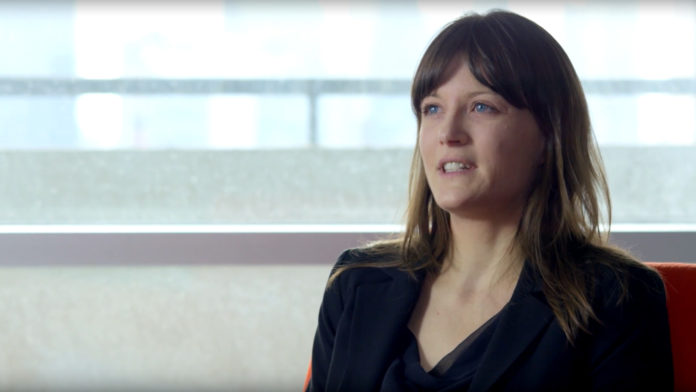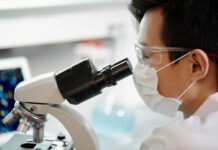Professor Angela Schoellig is an Assistant Professor at the University of Toronto Institute for Aerospace Studies (UTIAS) and head of the Dynamic Systems Lab. We asked her everything from why she chose her field of study to what she is reading in hopes of giving you a better understanding of what goes on outside the lab for one of the best minds in Canadian research.
What inspired you to become a researcher?
I guess I just never stopped asking “Why?” Why are things the way they are? And why can’t we change it? It was curiosity, optimism that we can make things better, enthusiastic teachers, and the fact that I get bored quickly with routine tasks that led me to do a Masters, then a PhD, and then become a professor.
What do you like most about your work?
There are many facets of my work I really like: working on problems that nobody has solved before; meeting and exchanging ideas with researchers from all over the world; passing my knowledge on to the next generation of engineers; working with highly talented, energetic and creative people; and the freedom and flexibility you have. For my research, I really like to see how rigorous maths and algorithms lead to intelligent, almost magical, robot (or system) behavior in the real world.
What do you envision in the future of your field?
I envision that robots become tools that provide us with capabilities that we wouldn’t have otherwise, similar to how computers and smartphones provide us with amazing capabilities today such as video chatting with a friend who is thousands of kilometers away. Robots will help us to achieve bigger goals and support us in our everyday life. For example, robot technology has already enabled us to see pictures from Mars, a planet where no human has been so far, or helped paraplegic people to walk again.
What advice would you give to young researchers?
Do something you are really interested in and enjoy doing, work on problems that are relevant, and – most importantly – never give up, continue pursuing the things you care about.
What do you consider your greatest achievement?
Standing up after falling, and realizing that this is the only good option anyways.
What do you read?
I am a fan of audio books. I have books from Brene Brown and Elizabeth Gilbert (‘Big Magic’) in my library right now.
If you could meet any historical figure, who would it be and why?
I would love to meet scientists who made major, new discoveries such as Einstein. I would like to hear their story of discovery: how did it happen? How did they get the idea? How did they approach the problem? What inspired their solution?
If you could do any profession other than your own what would it be?
Maybe researcher in the field of medicine. I’m still surprised how much we don’t know about the human body and its interactions with the environment.
What do you like to do for fun?
Exploring Toronto, exploring the world, sailing, sports, and spending time with friends and family.
Want to learn more about Prof. Schoellig’s research? Check out her Orange Chair Interview on smart robots.









































